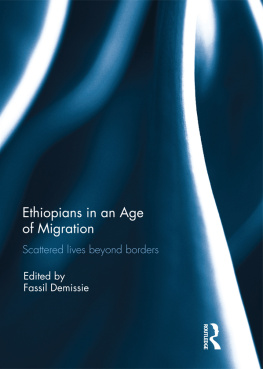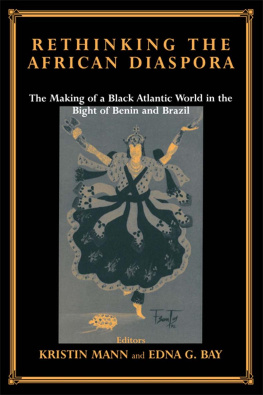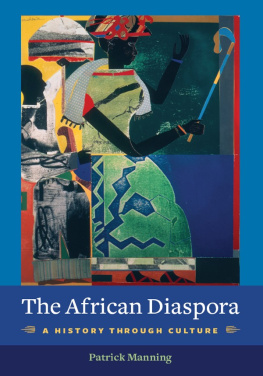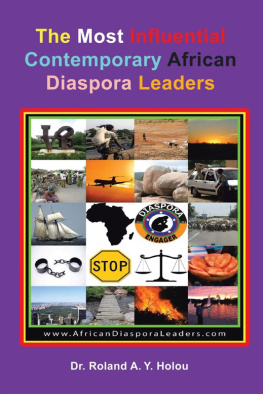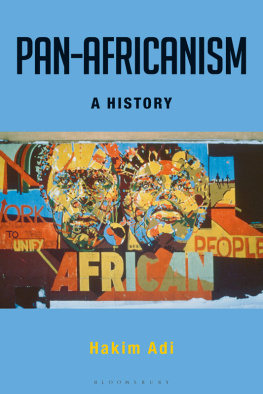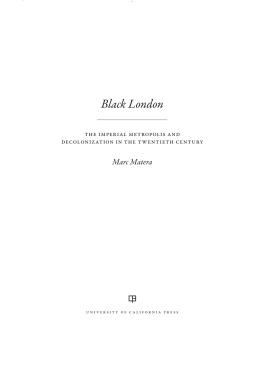
African Diaspora and the Metropolis
At the end of the 19th and at the beginning of the 20th century, a number of African American and Caribbean intellectuals and immigrants of the African Diaspora with all their apprehensions set out in steam ships and carried with them a certain presence to the metropolitan centers of Europe and North America. These individuals traversed the middle passage in the opposite direction from the forced journey undertaken by their enslaved ancestors. Later they began to arrive in large numbers as free men and women in London, Paris, Berlin, Madrid, Brussels, Lisbon, New York, and other places in the metropole by steam ships and later by planes, and were actors in the larger history of empire from which the imperatives of forced migration, uprooting, displacement, and exile had arisen.
The texts selected offer critical examination of a broad range of African Diaspora experiences in the metropole drawn from Senegal, the Caribbean, the United States, Britain, Nigeria and France. Bringing together comparative and diasporic perspectives, the book explores the complex roles that race, gender, sexuality and history have played in the formation of African Diaspora identities in the metropole since the 19th century.
This book was first published as a special issue of African and Black Diaspora: An International Journal.
Fassil Demissie is an Associate Professor in the Department of Public Policy, DePaul University. He has previously edited Postcolonial African Cities and serves as co-editor of African and Black Diaspora: An International Journal , both published by Routledge. He coedited The Black Body, Imagining, Writing and (Re)Reading (University of South Africa Press). His current project is Colonial Architecture and Urbanism in Africa: Intertwined and Contested Histories (forthcoming, Ashgate).
African Diaspora and the Metropolis
Reading the African, African American and Caribbean Experience
Edited by
Fassil Demissie
First published 2010
by Routledge
2 Park Square, Milton Park, Abingdon, Oxon, OX14 4RN
Simultaneously published in the USA and Canada
by Routledge
270 Madison Avenue, New York, NY 10016
Routledge is an imprint of the Taylor & Francis Group, an informa business
2010 Taylor & Francis
Typeset in Times by Value Chain, India
Printed and bound in Great Britain by TJI Digital, Padstow, Cornwall
All rights reserved. No part of this book may be reprinted or reproduced or utilised in any form or by any electronic, mechanical, or other means, now known or hereafter invented, including photocopying and recording, or in any information storage or retrieval system, without permission in writing from the publishers.
British Library Cataloguing in Publication Data
A catalogue record for this book is available from the British Library
ISBN10: 0-415-56034-9
ISBN13: 978-0-415-56034-4
Contents
| Fassil Demissie |
| Mpalive-Hangson Msiska |
| Babacar M'Baye |
| Zine Magubane |
| Kelly Duke Bryant |
| Elisa Joy White |
| Kanika Batra |
| Dominic Thomas |
Sam Selvons The Lonely Londoners and the structure of Black metropolitan life
MPALIVE-HANGSON MSISKA
The paper argues that Sam Selvons novel The Lonely Londoners (1956), whilst offering a study of the metropolitan experience of post-war African and Caribbean immigrants to London, gives profound insights into the fundamental structure of Black metropolitan subjectivity generally. The theoretical work of Georg Simmel, Walter Benjamin, Stuart Hall and, Paul Gilroy, among others, is used to illuminate particular aspects of the location of the Black subject in the London metropolis. The paper concludes by arguing that the novels rendering of Diasporic metropolitan life works with a dialectical shift in the perception of the character of the metropolis.
Richard Wright and African francophone intellectuals: a reassessment of the 1956 Congress of Black Writers in Paris
BABACAR MBAYE
This study examines the ambivalent relationships that Richard Wright had with African francophone intellectuals such as Leopold Sedar Senghor and Alioune Diop, who were involved in African anti-colonial struggles in France during the 1930s and 1950s when he was committed to African American struggle for equality, justice, and freedom. In an attempt to re-evaluate the African American writers participation in the 1956 Congress of Black Writers in Paris, this essay explores Wrights views on the Pan-Africanist ideas and concepts of culture and race that Senghor and Diop expressed in their convention speeches and analyzes the pivotal role that Wright had in the development of Prsence Africaine and Negritude despite his condescending views about Africans.
American philanthropy and African education: African students in the metropolis in the 1960s
ZINE MAGUBANE
Most memoirs written by the sons and daughters of African immigrants make reference to how the pursuit of education in America provided an impetus for the reverse middle passage that their parents (usually, indeed, their fathers) undertook in the 1960s. A quick perusal of biographies and autobiographies of Africans who came to the United States demonstrates that the vast majority of them who made the journey did so with the help of either American philanthropic foundations or the American government. These students, who varied tremendously in background, point of view, and political orientation, were united by one thing a dream of a better life. Few of them were aware of the political machinations that underwrote the construction of their fellowships. Most were blissfully unaware of how invested the United States government was in putting their own stamp on the people they would become. Their stories are instructive, therefore, for illustrating the power of African diaspora networks in the metropolis for providing these migrants with a sense of community and a connection to collective struggles at home which kept them from becoming political and ideological puppets, carrying out the mandate of their American benefactors.
In my Senegalese quality and as a compatriot: Senegalese students in the metropolis and the language of affinity, 1880-1890
KELLY DUKE BRYANT
This piece argues that experience in the metropolis has long played a significant role in the attitudes and worldviews of Senegalese elites. As such, travel to France has had profound implications for local understandings of nationality, culture, and race, well before the interwar period during which Negritude and other cultural movements flourished. The article analyzes a controversy surrounding a small group of students, which included Blaise Diagne, at a school in Aix-en-Provence, France during the 1880s, paying special attention to letters the students addressed to the Ministry of the Colonies. In their letters, students described themselves as compatriots and made claims to certain rights. The article concludes that categories like compatriot and even nation took on new significance in France. Given former students prominent positions after returning to Senegal, travel to the metropolis had great potential to shape cultural and political understandings at home.




